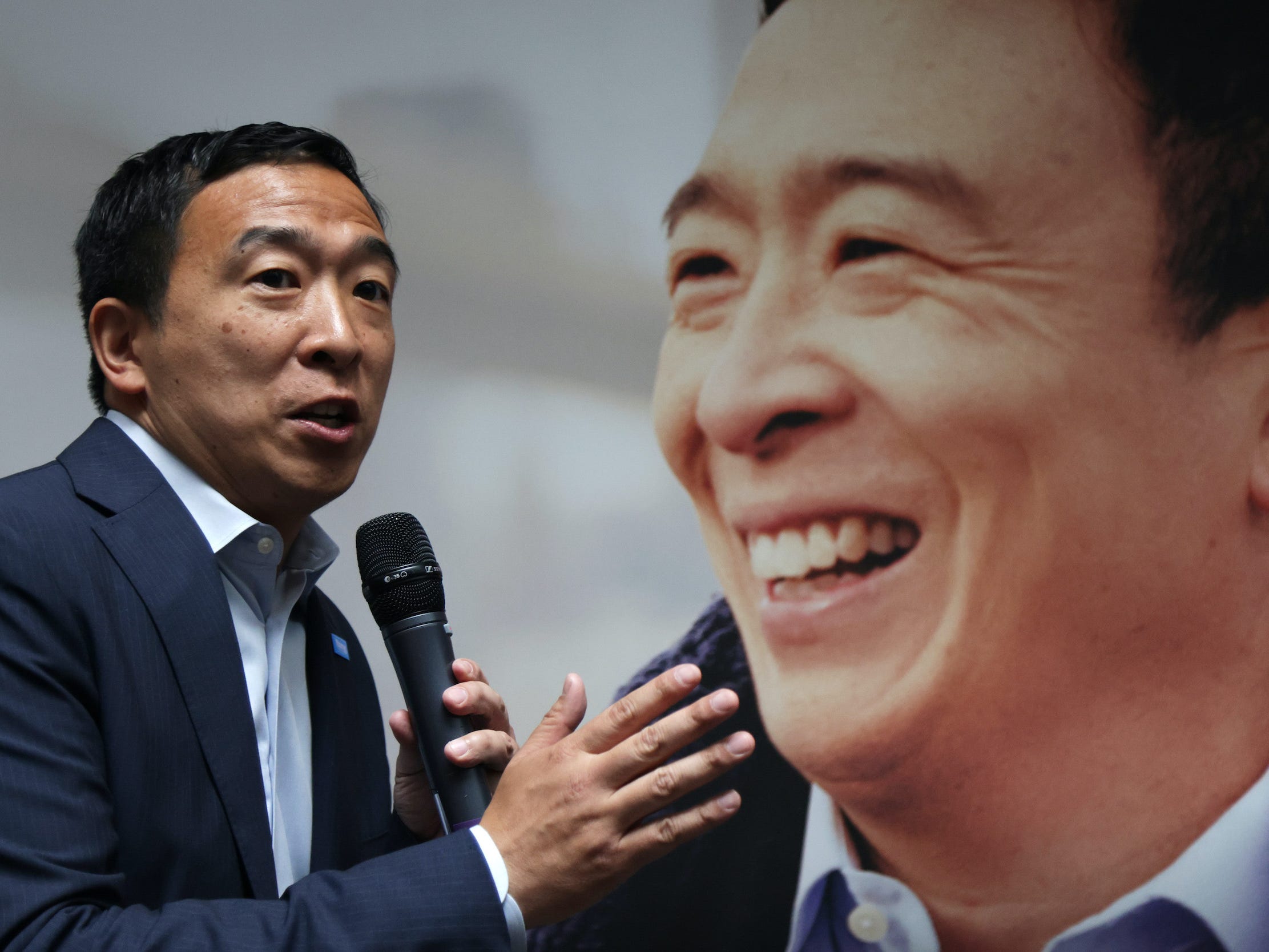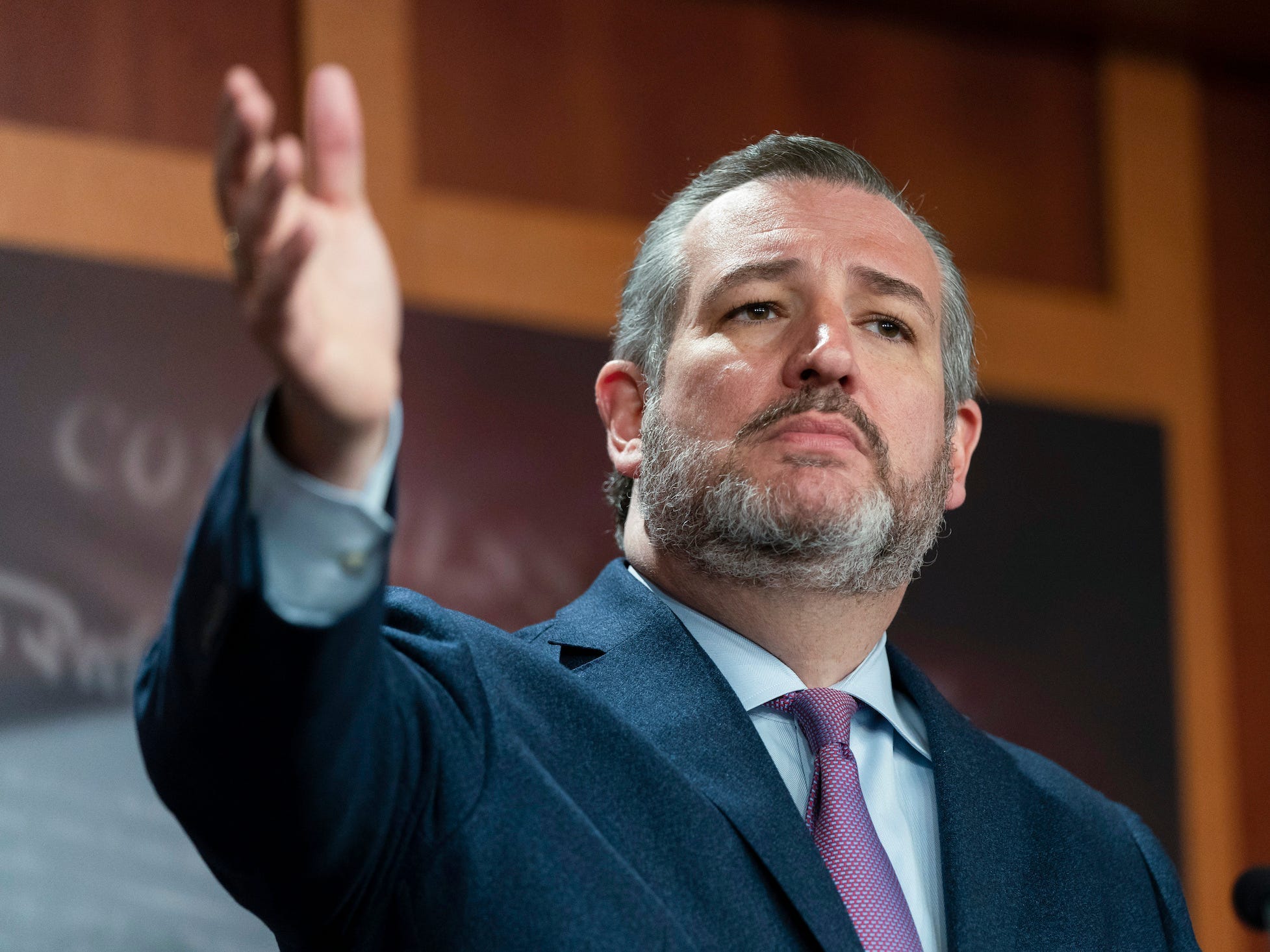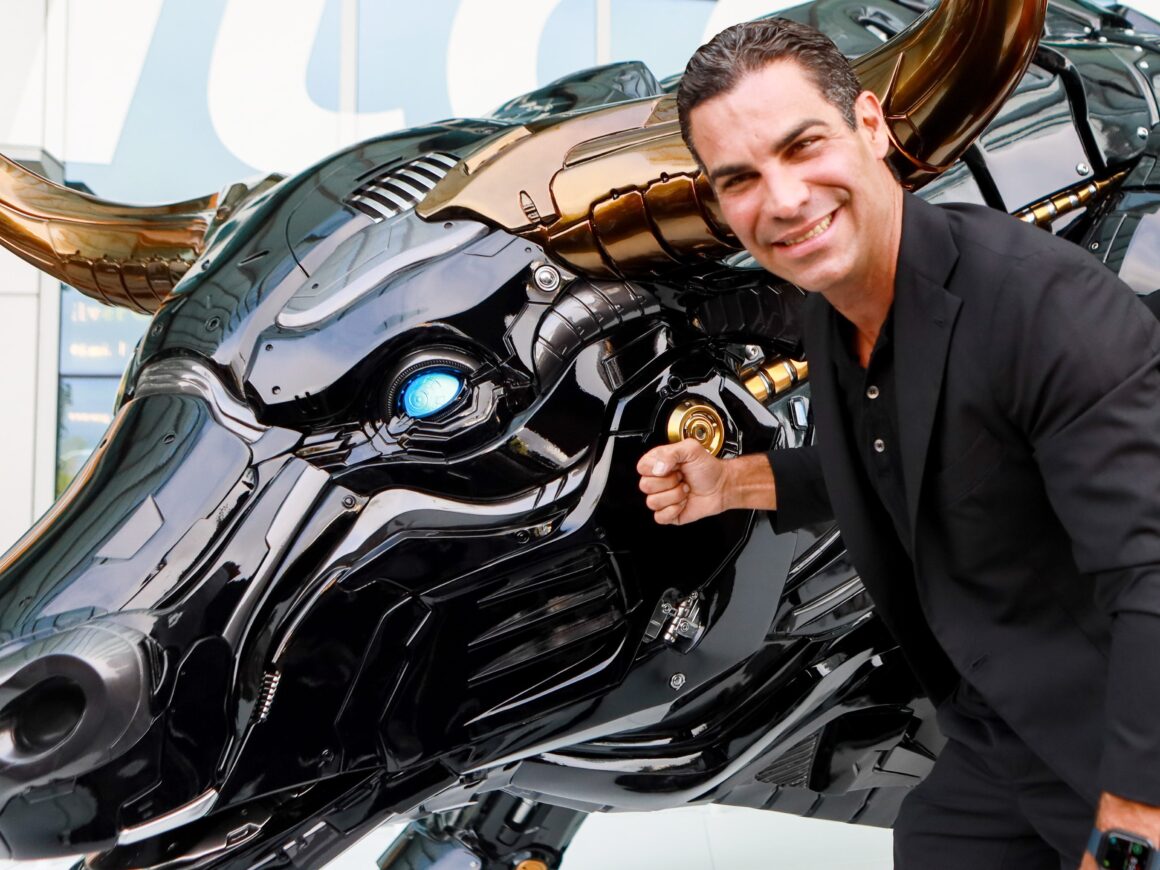Diana Zapata/BFA
- Politicians are increasingly advocating for cryptocurrency as interest in the space booms.
- Mayors of Miami and New York City, Andrew Yang, and other hopefuls are championing the cause.
- Crypto is likely to remain a hot item on political tickets.
Miami Mayor Francis Suarez excitedly unveiled a new symbol in his city at this month's bitcoin extravaganza.
A black, lego-like mechanical beast with glowing blue eyes and bronze horns, the new bull is meant to signify the rise of crypto — and the city's status as its hub.
Suarez's approach is not unique. Politicians are increasingly throwing their support behind digital currencies and assets to entice voters. And so far, it's working out.
It might be a natural outcome of the booming crypto space as more Americans and others around the world dive in, Dara Tarkowski — a Chicago attorney who specializes in financial technology and cryptocurrency — told Insider.
"If you look statistically at the number of people that have started investing in crypto and becoming very interested in NFTs, it would almost be foolish for a politician to not pay attention to that," Tarkowski said.
Crypto advocacy = favor among the people

Alex Wong/Getty Images
One in six Americans has invested in, traded, or used crypto in some capacity, according to a March NBC poll, a feat that has clearly not gone unnoticed.
Andrew Yang, despite two election losses, is intent on making his new political group, known as the Forward Party, the "Crypto Party" in an effort to thrust the technology into the mainstream.
New York City mayor Eric Adams said he converted his first three paychecks into bitcoin and ether — a move in sharp contrast to the rest of the state, which has been one of the toughest on crypto due to its harmful environmental impacts.
There also may be a lucrative pipeline from crypto organizations to state and federal offices. As The New York Times reported, the legislative affairs director of a Florida blockchain association is running for the State House to, in part, "improve workflows in businesses with blockchain technology."
Then there's the former child star of the "Mighty Ducks" movie franchise who made a fortune in crypto and is running for US Senate in Vermont. His website calls blockchain technology "a modern vehicle for the American dream."
Politicians outside the US are operating similarly. Perhaps most notably there is El Salvador's bitcoin-enamored, meme-loving president Nayib Bukele, who adopted bitcoin as a legal form of tender for his country in 2021 and wants to raise $1 billion for a bitcoin bond.
He was the most popular president in Latin America as of early 2022, with an 85% approval rating.

MARVIN RECINOS/AFP via Getty Images
About four in five Americans would be more apt to vote for a candidate if they supported Web3 technology, according to a late 2021 survey from the venture capital firm Andreessen Horowitz, which has backed many crypto initiatives.
"Whether they're doing it because they understand it or they're doing it because it's a fad, it almost doesn't matter," Tarkowski said.
Blue and red division over the technology

AP Photo/Alex Brandon
But as crypto is tugged into the messy world of American politics, it's already been seized for partisan agendas and been divided between them. As it has burst onto the scene in the last decade, politicians have found political fodder in the technology.
"One of the reasons I'm bullish on #Bitcoin is because it's decentralized," Republican Sen. Ted Cruz tweeted in February. "The Left hates Bitcoin because they can't control it."
The anti-Big Government nature of cryptocurrency, existing outside of traditional financial frameworks, was a natural fit for Republicans and libertarians from the get-go.
"It doesn't surprise me of course that it's fallen out pretty neatly that most people on the right, and even the far-right, back it most strongly," David Golumbia — a digital studies professor at Virginia Commonwealth University and the author of "The Politics of Bitcoin: Software as Right-Wing Extremism" — told Insider.
But Democrats appear divided on the technology, with some supporting innovation, albeit regulated innovation, and others like Sen. Elizabeth Warren taking a staunchly anti-crypto position.
Crypto may already be politicized, but Yang told Blockworks in February that "we have to do everything we can to keep" that from happening.
"If we can avoid that fate, then we can become an industry that continues to create billions of dollars of value and tens of thousands of jobs," he said.
